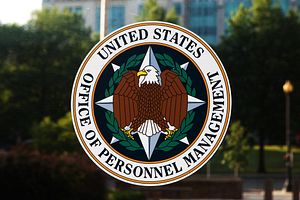Time for your round-up of China news for the week:
As I noted earlier this week, the United States and China held the first round of their new dialogue on cybercrime on December 1 and 2. The outcomes of the dialogue were as minor as you’d expect, given the huge gap that exists between the two sides on cyber issues. But one fascinating reveal was buried in Xinhua’s English-language coverage of the meeting, which claimed that the mystery of a massive hack in the U.S. Office of Personnel Management had been solved:
Among the cases discussed included the one related to the alleged theft of data of the U.S. Office of Personnel Management by Chinese hackers. Through investigation, the case turned out to be a criminal case rather than a state-sponsored cyber attack as the U.S. side has previously suspected.
The hack on OPM compromised the personal information of some 22 million current and former federal employees. U.S. officials privately hinted that they believed China was behind the hack, but never said so on the record, nor provided any evidence for the assertion. Xinhua’s assertion that an “investigation” (by whom was never mentioned) determined the OPM hack to be a “criminal case” fits with Beijing’s insistence that it does not carry out any state-sponsored cyber espionage (though OPM, as a government agency, would be considered a ‘legitimate’ target for cyber espionage, under the Obama administration’s formulation).
There’s been no confirmation of the “criminal case” conclusion from the United States, however; the OPM case wasn’t mentioned in the Department of Homeland Security’s summary of the dialogue.
Making things even more interesting, the Washington Post’s Ellen Nakashima reported on Tuesday that the Chinese government had arrested suspects believed to be behind the OPM hack. Nakashima said China had arrested a “handful” of hackers for the OPM attack just before President Xi Jinping’s state visit to the United States in September. There were no details on any of the particulars – how many people were arrested, who they were, and whether they were affiliated with any government agencies.
The Post report hasn’t been confirmed by either Chinese or U.S. government officials. When White House Press Secretary Josh Earnest was asked about the reported arrests, he declined to make any specific comments.
Moving on to other news, the Forum on China-Africa Cooperation is holding a summit meeting in Johannesburg, South Africa, right now. It’s a huge conference, involving Chinese President Xi Jinping as well as the leaders of most of the African states. The UN Development Program has a useful primer on the history of FOCAC and of China-Africa relations.
There’s been one big development already: Xi pledged to deliver $60 billion in development aid for projects in Africa, according to Reuters.
In domestic news, China Daily has a piece on China’s push for nuclear power – which will see 110 nuclear reactors operating in the country by 2030, according to Power Construction Corp of China Ltd. The company says that China’s 13th Five Year Plan (currently in draft form) calls for between six and eight new reactors to be built each year from 2016-2020, with $78 billion set aside for the projects.
China’s pursuit of nuclear energy is closely tied to its quest to move away from coal – which is a major culprit behind the crippling smog that envelops many northern Chinese cities, particularly in the winter. It was a particularly bad stretch in Beijing this week, prompting netizens to post hazy images of landmarks in the Chinese capital on social media. Chinafile has a collection of some photos, with other tidbits on how Chinese are responding to the smog.
Bloomberg notes the political consequences of the smog. Many Chinese have decided to pin the blame on one figure in particular: Beijing’s mayor, Wang Anshun, who publicly pledged to clean up Beijing’s air by 2017 – or cut off his own head. Some netizens are looking to make good on that promise a few years early.

































